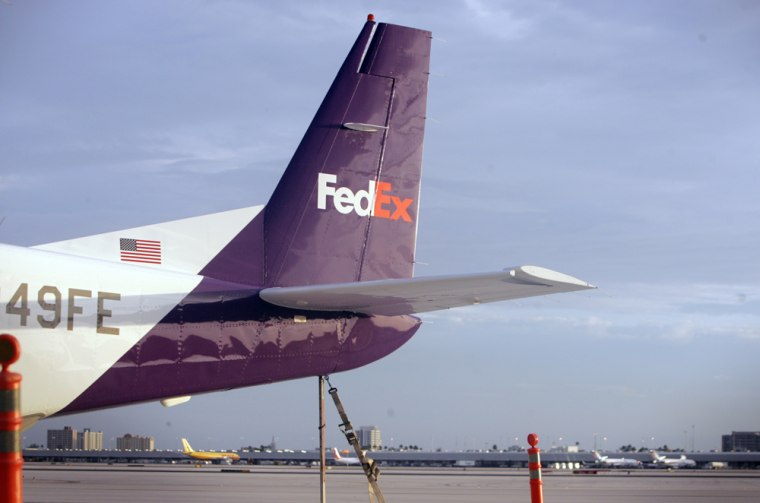While Boeing and Airbus compete vigorously for passenger-jet sales, a confluence of luck (good for Boeing, bad for Airbus) and smart planning has left Boeing the virtual sole supplier of new air cargo jets. Delays and canceled orders have marred production of Airbus' A380 freighter, which had been meant to assault Boeing's 90% control of the air freight market.
In the aerospace industry, it's usually the airlines and aircraft leasing companies that dictate pricing. But now, as Airbus struggles, deals are being done on Boeing's terms. With newfound pricing power, Boeing will enjoy higher margins on its new freighter sales. That will mean robust results for Boeing commercial airplane sales and will help make 2007 a banner year for the Chicago-based aerospace giant.
Prosaic cargo planes may be overshadowed by such higher-profile projects as Boeing's glamorous 787 Dreamliner passenger jet. But sales of cargo haulers are booming. Two months ago, industry bellwether FedEx canceled its A380 order to buy 15 new Boeing 777 freighters. New freighter sales are pushing Boeing's 2006 order book, which now stands at 904 planes, closer to 2005's record orders of 1,002 aircraft. For the first time new freighter jets make up 17% of Boeing's total aircraft sales, boosting the commercial airplane backlog to a record $154 billion. Such sales usually make up 10% or less of plane sales. "I've never seen two years like this," says Larry D. Dickenson, a Boeing sales vice-president. "I don't think we'll ever see this again."
The rise of Asia, particularly China, as the world's primary manufacturing outpost is driving the demand for air freight. According to Air Cargo Management Group, air freight is projected to grow faster than passenger travel, by about 6.4% annually over the next 20 years, vs. 4.5% for passenger. Also, higher fuel prices have created additional need for fuel-efficient twin-engine jets like the ones offered by Boeing.
For Boeing, the delays on the Airbus A380 create a sort of virtuous cycle. First, they force companies to switch freighter orders, as big aircraft lessor International Lease Finance did, as well as FedEx. Second, the delays in the passenger version of the A380 mean potential customers have to keep older planes, such as Boeing 747-400s, in passenger service longer, rather than convert them into cargo haulers — a far cheaper option than buying new. Fewer used jets lying around means more demand for new cargo jets, and bigger sales for Boeing.
Smart strategy
Boeing's new 777 freighter will roll out of the factory in the fourth quarter of 2008, to be followed by the new, enlarged 747-8 in 2009. Airbus says it's not canceling the A380 freighter, but experts wonder if it can afford the expensive program when it has only managed to sign up a single big buyer, United Parcel Service. "It's hard to justify a program of that magnitude with basically one primary customer," says Richard L. Aboulafia, aerospace analyst at aerospace consulting firm Teal Group.
Boeing's ability to meet demand stems from a strategy mapped out six years ago. It was partly a response to the A380, which can carry 141 metric tons, vs. 113 for Boeing's 747 freighter version. The A380 also could fly farther without refueling. So Boeing powwowed with cargo companies, tailored its fleet to their needs, and created a business to convert passenger jets into freighters. It then began to develop planes that could fly farther without refueling and that had efficient engines.
A key goal was to keep operating costs lower than those of the 1,800 freighters in service. In May, 2005, Boeing unveiled the design for its twin-engine 777 freighter, which has operating costs about half those of four-engine freighters. In November it launched the 747-8; its fuel-efficient engines match the A380 on range and beat it on cost. With numbers like that, and with Airbus' woes, odds are Boeing's order book will grow even thicker.
